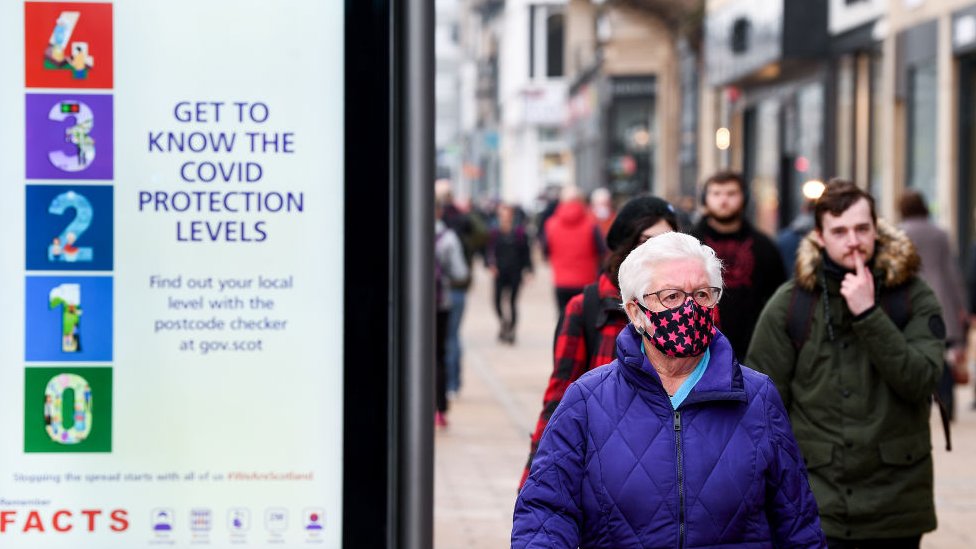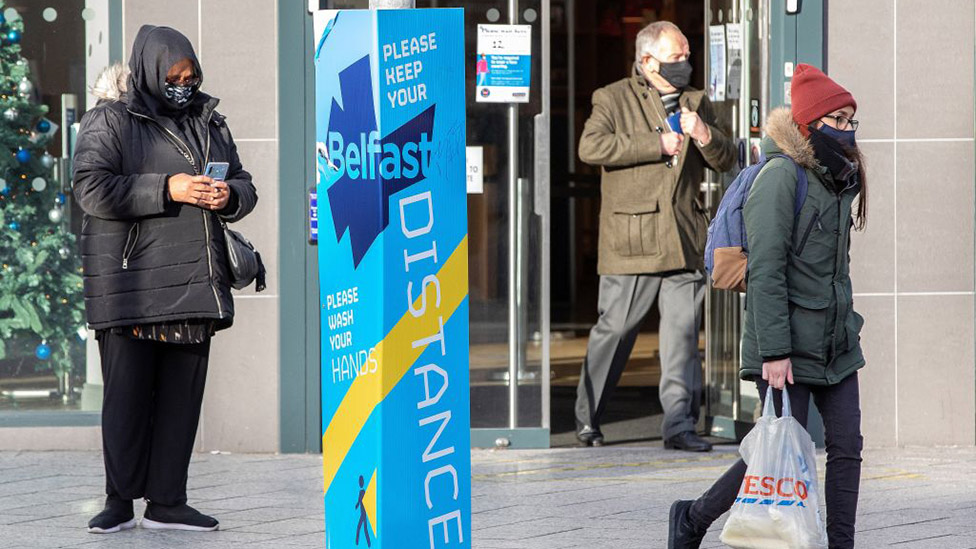(As BBC website) "England is going into lockdown to try to prevent the NHS from becoming overwhelmed by a surge in coronavirus cases.
Primary and secondary schools will close to almost all pupils, and people will be instructed to stay at home.
Northern Ireland, Scotland and Wales are also under lockdown, with schools in Scotland closed until at least the end of January.
What are England's new rules?
People in England will have to stay at home and only go out for essential reasons. Primary and secondary schools will move to online learning for all pupils apart from vulnerable and keyworker children, while those who are clinically extremely vulnerable will be advised to shield.
Activities still allowed include:
- Unlimited exercise outdoors
- Meeting one other person from another household in an open public space to exercise
- Shopping for essentials such as food and medicine
- You can leave home for work, education, training, childcare and for medical appointments and emergencies
- Communal religious worship
- Support bubbles are still allowed and children can move between separated parents
What are the restrictions in Scotland?
Scotland has its own restriction levels - from zero to four.
On Boxing Day, mainland Scotland went into a level four restrictions, while Orkney, Shetland, the Western Isles and other island communities are in level three.
From midnight on 4 January, the mainland will move to "enhanced level four restrictions" until at least the end of the month. During this time, schools will be closed to almost all pupils, First Minister Nicola Sturgeon says. The islands will stay in tier three.
"Enhanced" level four rules
From midnight on 4 January, all of mainland Scotland is under enhanced level four, or lockdown:
- Nursery, primary and secondary schools will close to all but vulnerable pupils and the children of key workers until February. Learning will move online
- People should only leave home for essential reasons such as caring responsibilities, essential shopping, exercise or seeing their extended household
- Those who are shielding should not go into work, even if they cannot work from home
- A maximum of two people from up to two households can meet outdoors (under-11s are not included in the limit and can play together outside)
- Places of worship will close except for weddings (up to five people) and funeral services (up to 20 people). Wakes are not allowed.
- The definition of an essential business will be tightened with premises such as ski centres, large retail showrooms, and cosmetic clinics required to close
Level four rules
Indoors:
- No household mixing
- Exceptions include providing care to a "vulnerable person", or "extended households" to reduce loneliness
- Children can move between homes of separated parents
Outdoors:
- Up to two households - no more than six adults - can meet in a private garden or a public place like a park
- Children under 12 are not counted and don't need to social distance
- Young people aged 12 to 17 can meet in groups of up to six outdoors - they're not subject to the two-household limit, but need to be physically distanced
Pubs, cafes & holiday accommodation:
- Restaurants, cafes, pubs and bars must close - but takeaways can operate as normal
- Holiday accommodation must close - but hotels, B&Bs and self-catering can open for essential customers (such as people staying for work)
- Hotels and other accommodation providers can serve food up to 10pm to guests
Supermarkets, clothes shops & markets:
- Only essential shops can open, and must follow Covid-safe guidelines.
- Homeware stores and garden centres must close
- Click and collect, online services can open
- Hairdressers, nail salons and other close contact services must close
Sport, leisure & entertainment:
- Indoor sports facilities, including gyms, must close
- You can meet others outdoors for informal exercise or sport - outdoor gyms can remain open
- Outdoor non-contact sports are permitted
- Leisure and entertainment premises, including cinemas, must close
- Film and TV production can continue
- Public buildings, such as libraries, must close - but libraries can operate click and collect
Places of worship:
- Places of worship can open with social distancing and a maximum 20 people
- Wedding ceremonies and civil partnerships, are allowed with social distancing and a maximum 20 people
- Wedding receptions are not allowed
- Funerals and wakes can take place with a maximum of 20 guests
Education:
- Schools, colleges and universities can remain open
- Early learning and childcare can remain open
- Informal childcare is only allowed for parents or guardians employed in essential services
Level three (very high) rules
- Pubs and restaurants can open until 18:00, but alcohol can't be served
- Leisure and entertainment venues must close
- Non-essential travel in or out of the area is not allowed
- Indoor gym use is restricted to individuals
- Hairdressers and barbers can open
Levels two, one and zero
There are three further levels - two, one zero. However, none of these levels currently apply to any area in Scotland.
What are Northern Ireland's rules?
A six-week lockdown began in Northern Ireland on Boxing Day.
The new rules include:
- Closure of all non-essential shops, including garden centres and homeware shops
- No click-and-collect services
- Closure of hair and beauty salons
- Hospitality businesses open only for takeaway and delivery
- Leisure and entertainment venues must close
- Off-licences must close by 20:00
- Car washes must close
- Weddings, civil partnership ceremonies and funerals limited to 25 people - wedding receptions not allowed
- Churches can open, but with measures such as compulsory face masks
- Elite sport allowed behind closed doors
What are the rules in Wales?
Wales has a national lockdown. The new level four measures mean that:
- You must stay at home, except for very limited purposes
- You must not visit other households, or meet other people you do not live with, unless they are in your support bubble
- Many types of businesses are required to close
- Wedding receptions and wakes are not allowed
You should also:
- Work from home if you can
- Not travel without reasonable excuse
- Not travel internationally without reasonable excuse
The following must close:
- Venues for events and conferences
- Entertainment venues including theatres and concert halls
- Indoor and outdoor visitor attractions
- Sport courts, golf courses, leisure and fitness facilities
- Holiday accommodation
- Pubs, bars and cafes (except for takeaway and delivery)
- Hairdressers and nail salons
- Non-essential shops (click and collect allowed)
- Libraries (click and collect only)"










